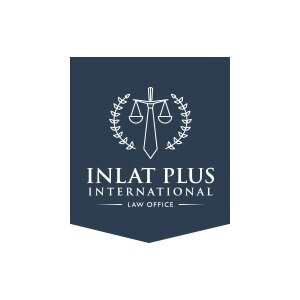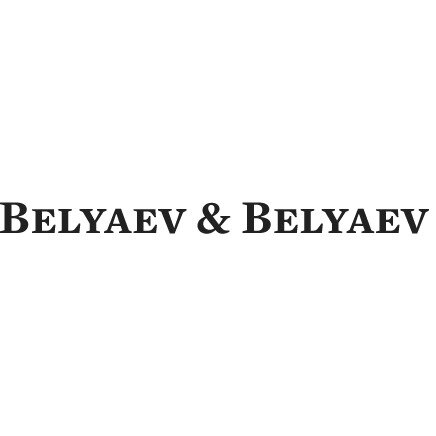Best Adoption Lawyers in Latvia
Share your needs with us, get contacted by law firms.
Free. Takes 2 min.
Free Guide to Hiring a Family Lawyer
Or refine your search by selecting a city:
List of the best lawyers in Latvia
About Adoption Law in Latvia
Adoption in Latvia is a legal process that allows individuals or couples to provide a permanent family environment for children who are unable to live with their biological parents. Latvian adoption laws align with international standards, ensuring the child’s best interests are prioritized. The process may involve domestic or international adoption, with specific criteria and procedures in place for each. Prospective adoptive parents are subject to assessments and must comply with legal requirements to ensure they are suitable for parenting.
Why You May Need a Lawyer
Navigating the adoption process can be complex, and legal assistance may be necessary in several situations. Prospective parents may need help understanding eligibility criteria and navigating bureaucratic processes. Legal support is also crucial during court hearings, where decisions are made regarding the adoption's finalization. Potential challenges such as cross-border legal considerations for international adoptions, handling disputes over parental rights, or appealing decisions can all benefit from professional legal advice to ensure a smooth and lawful adoption process.
Local Laws Overview
Latvian adoption laws specify who can adopt and be adopted, with strict eligibility criteria for both parties. Adoptive parents must meet conditions related to age, health, and living conditions. The law also ensures the voluntary consent of biological parents, except in specific circumstances where their rights have been terminated. Adoption proceedings are overseen by the courts and social services, which play a key role in evaluating the prospective family environment. The integration of international conventions to which Latvia is a signatory further shapes the framework of adoption laws, safeguarding ethical standards in international adoptions.
Frequently Asked Questions
What are the basic requirements for adopting a child in Latvia?
Prospective adoptive parents must be at least 25 years old, and generally no more than 50 years older than the child, although exceptions can be made. A stable financial and social environment is also necessary.
Can single individuals adopt a child in Latvia?
Yes, single individuals can adopt in Latvia, provided they meet the legal criteria and demonstrate the ability to provide a suitable home for a child.
How long does the adoption process usually take in Latvia?
The adoption process can vary, typically ranging from several months to a few years, depending on factors like the type of adoption (domestic or international) and individual circumstances.
Is it possible to adopt a child from Latvia if I live abroad?
Yes, foreign nationals can adopt Latvian children under certain conditions, subject to both Latvian and their home country’s legal requirements.
Do adoptive parents have to travel to Latvia during the adoption process?
Yes, adoptive parents are generally required to travel to Latvia to meet the child and finalize adoption procedures in person.
What steps are involved in the adoption process?
The process involves application submission, assessment by Latvian authorities, matching with a child, provisional custody, court approval, and post-adoption follow-ups.
Are siblings considered for adoption together?
Siblings are often kept together whenever possible to preserve familial bonds, unless it is not in their best interest.
What support is available for adoptive families in Latvia?
Latvia offers counseling and support services to assist adoptive families with the transition and address any challenges they may face post-adoption.
Can adopted children retain contact with their birth families?
This depends on individual circumstances and agreements made during the adoption process but maintaining contact is often encouraged if deemed beneficial for the child.
Is open adoption an option in Latvia?
While traditional closed adoptions are more common, the possibility for an open adoption, where there is contact with the birth parents, depends on mutual agreement and the child's best interest.
Additional Resources
For anyone needing more information or support, the following resources can be beneficial:
- The Ministry of Welfare of the Republic of Latvia
- Latvian Orphan's Court
- Certified adoption agencies accredited by the Latvian government
- International Adoption Resource Centers
Next Steps
If you are considering adoption in Latvia and require legal assistance, it’s advisable to consult with a lawyer who specializes in family law and international adoption. They can guide you through the legal requirements and ensure compliance with both local and international laws. You should also contact registered adoption agencies or the local orphan’s court to start the application process and obtain pertinent information on the legal prerequisites and documentation required.
Lawzana helps you find the best lawyers and law firms in Latvia through a curated and pre-screened list of qualified legal professionals. Our platform offers rankings and detailed profiles of attorneys and law firms, allowing you to compare based on practice areas, including Adoption, experience, and client feedback.
Each profile includes a description of the firm's areas of practice, client reviews, team members and partners, year of establishment, spoken languages, office locations, contact information, social media presence, and any published articles or resources. Most firms on our platform speak English and are experienced in both local and international legal matters.
Get a quote from top-rated law firms in Latvia — quickly, securely, and without unnecessary hassle.
Disclaimer:
The information provided on this page is for general informational purposes only and does not constitute legal advice. While we strive to ensure the accuracy and relevance of the content, legal information may change over time, and interpretations of the law can vary. You should always consult with a qualified legal professional for advice specific to your situation.
We disclaim all liability for actions taken or not taken based on the content of this page. If you believe any information is incorrect or outdated, please contact us, and we will review and update it where appropriate.
Browse adoption law firms by city in Latvia
Refine your search by selecting a city.











